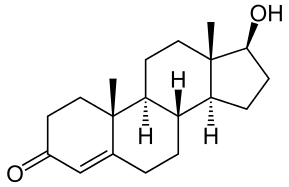Latest Testosterone Study – No Link to Risk of Heart Attack
A newly published study involving 24,000 male Medicare patients given testosterone treatment has fuelled the ongoing debate about the risk-versus-benefit of testosterone therapy in men.
In this newest study, the hormone reportedly did not increase the risk of heart attack and actually seemed to lower the risk by about 30 percent.
The research was conducted at the University of Texas and it compared testosterone users (6,355) with non-testosterone users (19,065) over an eight-year period (1997-2005). The men were given testosterone injections not pills, patches or gels. For those men in the highest quadrant risk for heart attack, the use of the hormone cut their risk by almost 30 percent. The study is published in the Annals of Pharmacotherapy.
The authors declared no conflicts of interest with regard to the research and publication of this article. One always has to look for these conflicts when a new opinion is in sharp contrast to the prevailing research. For example, a study recently published in the Journal of the American Medical Association (JAMA) linked testosterone therapy in veterans to an increased risk of heart attack, stroke and death by about 30 percent.
Last January, the published study showed an increased risk of heart events within the first 90 days after beginning testosterone therapy.
A randomized placebo-controlled study was halted in 2010 because of the higher rate of cardiovascular events. As a result of those findings, the Food and Drug Administration (FDA) announced it would evaluate testosterone products.
In June 2014, the FDA required manufacturers to add a warning label to the drug about the risk of venous blood clots, or blood clots in the veins. Blood clots are associated with an increase in red blood cells or polycythemia that can occur with testosterone treatment, but blood clots in the veins have also been noted in users unrelated to polycythemia.
Men typically lose testosterone as they age and low testosterone is connected to sexual dysfunction, osteoporosis, fatigue and diabetes, among other health problems. That’s why the public has been so receptive to “Low-T” advertising.
A simple blood test will reveal if a man has seriously low levels of testosterone but the popular advertisements make it seem the “Low-T” products are for any man who wants to rev up his life.
Popular testosterone replacement drugs include AndroGen and Axiron. Sales of testosterone supplements have soared into the blockbuster category with $2 billion of sales in 2012, benefitting companies such as Eli Lilly and AbbVie.
Share This



